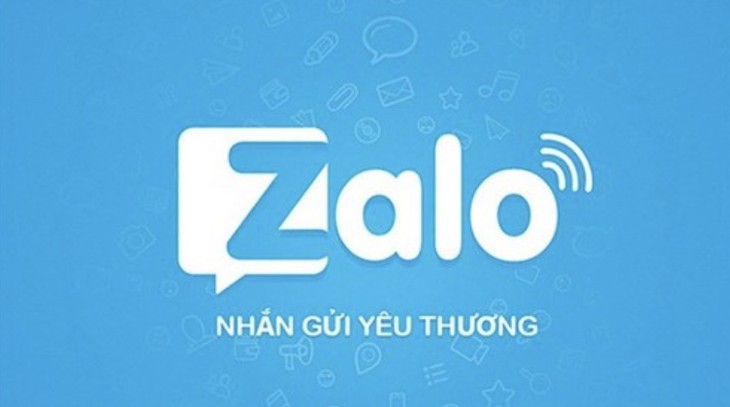(VOVWORLD) - Vietnam is experiencing a strong and rapid wave of digital transformation. 70,000 digital technology enterprises are registered to operate and many have gained a foothold in foreign markets. Several “Make in Vietnam” digital technology products have affirmed their position in domestic and foreign markets. Vietnam is confident in its ability to master modern technologies, and is on track to realize itsgoal of becoming a digital powerhouse by 2045.
Examples of successful digital technology companies with “Make in Vietnam” products are numerous. They include Viettel, which sells 5G network equipment in foreign markets and has revenues of over 3 billion USD; VinGroup, which makes cars for export to the US; FPT, which provides information technology and digital transformation services to developed nations including Japan and the US, and has revenues of over 1 billion USD; and Zalo, a Vietnamese social networking application, which has a greater number of accounts than Facebook does in Vietnam. These companies inspire and create confidence for the future of “Make in Vietnam”technology.
 Zalo is a Vietnamese social networking application, which has a greater number of accounts than Facebook does in Vietnam. Zalo is a Vietnamese social networking application, which has a greater number of accounts than Facebook does in Vietnam. |
This initial success is due to the fact that over the past time, the Vietnamese Government has always had a clear strategy. They have placed digital technology businesses front and center and adoptedthe “Make in Vietnam” brand as their foundation. Finding talented people has also been key. Vietnam has made significant investments in the development of digital technology in many forms.
The Government has issued policies on the 4.0 Industrial Revolution and the development of digital technology enterprises while developing a National Digital Transformation project moving towards a digital economy, a digital society, and an effective egovernment. This has opened up great opportunities for Vietnam’s breakthrough development. The government also encourages large businesses to focus on digital platforms and infrastructure, creating a launching pad for people and small businesses to develop.
“Cloud computing is a digital infrastructure, a basic foundation to promote digital transformation. It plays an important role in promoting the digital economy. Therefore, the State’s policy to support Vietnamese businesses to provide better service is a huge advantage for businesses like us,” Phan Hong Tam, Head of Cloud Technology Division, FPT Smart Cloud, said.
Adopting cuttingedge technologies like blockchain and super automation has aided Vietnamese technology products to gradually make their mark on the global market. However, rising competition in the technology field has forced businesses to develop new digital technology and quickly adapt to changing global trends by raising their products’ quality, services, and designs, Tam said.
“Vietnam has lagged behind the world’s large service providers in terms of market share andcommunication. It will take effort and determination to master technology to build the “Make in Vietnam”platform. Building a strong team with a long-term development strategy is the main task which our business set out to achieve,” he added.
Now, in the four years since the Ministry of Information and Communications’ “Make in Vietnam” initiative was introduced, the digital technology sector has remained a strength of thenational economy, contributing to Vietnam’s overall economic growth. The digital technology industry earned an estimated 136 billion USD last year, proving Vietnamese digital businesses’ pioneering role in research, development, and innovation and contributing to national digital transformation.
 Pham Duc Long, Deputy Minister of Information and Communications. (Photo: VOV) Pham Duc Long, Deputy Minister of Information and Communications. (Photo: VOV) |
Management agencies have continuously adopted policies to promote “Make in Vietnam” products and push the development of digital technology businesses. Policies to develop Vietnam’s digital technology industry are being implemented, including incentives for “Make in Vietnam” digital technology businesses; foreign direct investment (FDI) attraction, and human resource development.
“The Ministry of Information and Communications recently launched a campaign to support domestic digital technology companies to expand their operation abroad. We have partnered with consultinggroups to provide policy support and legal advice on products that can be brought to foreign markets. We encourage large and pioneering businesses that have successfully invested abroad to support small businesses to follow suit,” Pham Duc Long, Deputy Minister of Information and Communications, said:
The national “Make in Vietnam” strategy is being vigorously implemented, encouraging companies to do research and develop digital technology products while laying an important foundation for major development goals including developing a digital government, the digital economy, a digital society, and a digital nation.
Vietnam’s digital industry has a bright future thanks to a strong determination from the government, ministries, branches, businesses, as well asindividuals. Vietnam is well aware that only when its citizens really comprehend modern technologies will they be able to actively shape their own future.
The main objective of the “Make in Vietnam” strategy is to develop Vietnamese technology businesses, accelerate national digital transformation, and help Vietnam escape the middle-income trap and become a fully developed country by 2045.